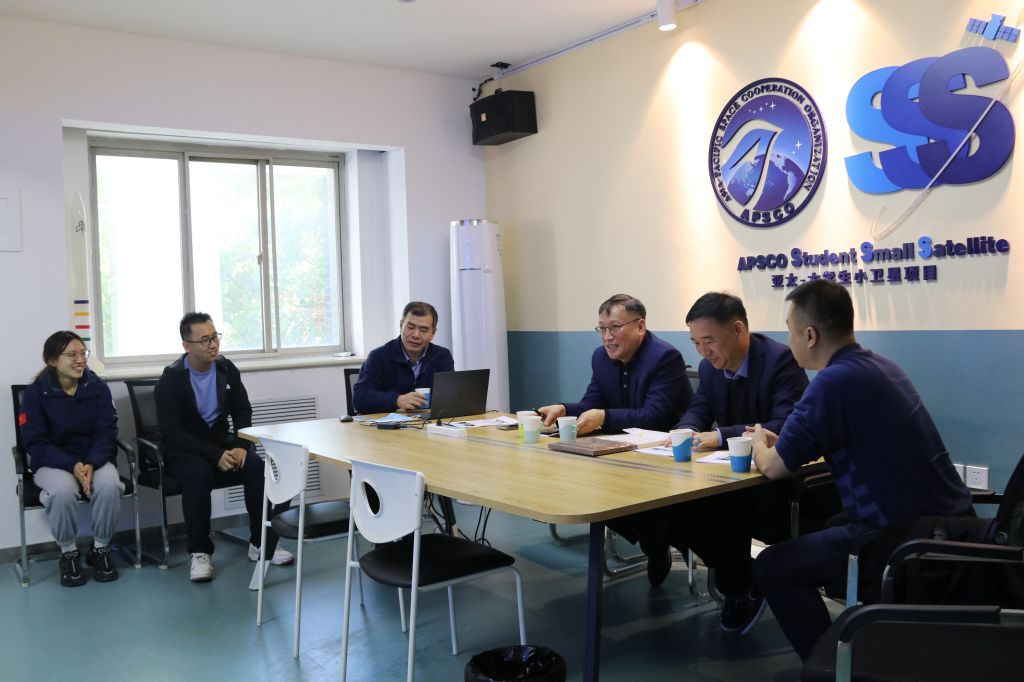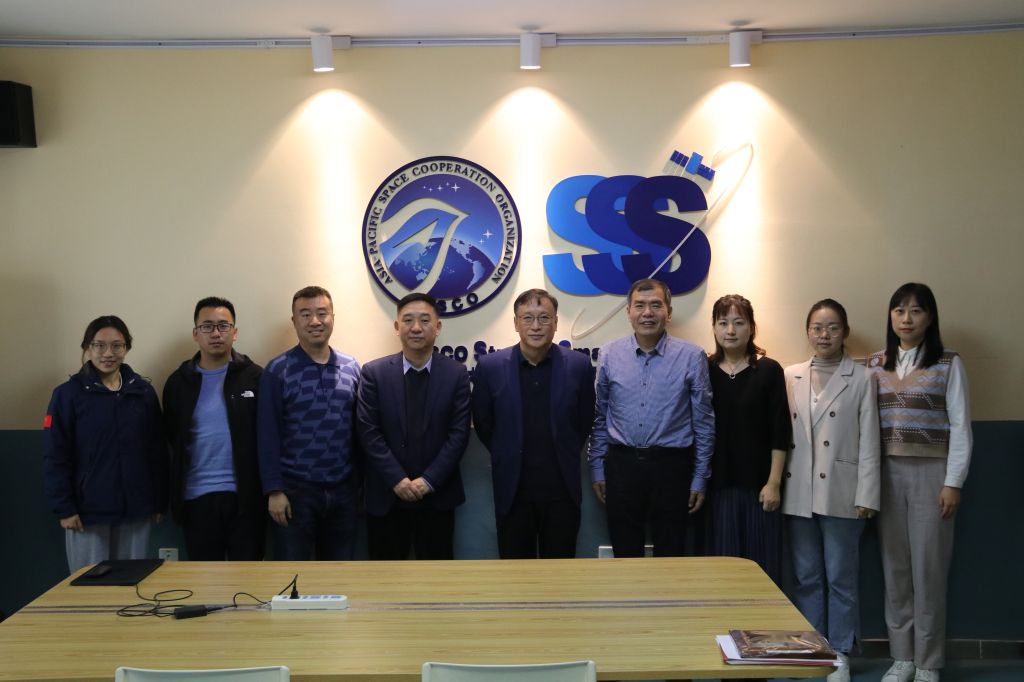APSCO Student Small Satellite-1 is the first micro-satellite mainly developed and led by Beihang University. It was launched at 18:51 on October 14, 2021, by piggy-backing a CZ-2D rocket from Taiyuan Satellite Launch Center in Shanxi, China. After 812 seconds, the satellite separated from the carrier rocket in triumph, entered the preset orbit, and then shifted to the autonomous operation phase with various equipment on board successively turned on.
On the morning of October 26, 2021, Mr. Tao Zhi, Vice President of Beihang University, came to Micro-satellite Mission Control Center located in the Centre and made a detailed understanding of the in-orbit operation status of APSCO-SSS-1. He viewed satellite telemetry data played back on the large screen, watched the corresponding images of the successful deployment of the coilable mast sent back by satellite core-load, real-time checked the stable satellite attitude, normal power supply and distribution, good condition in monitoring, and listened to the report on relevant situation.

Mr. Weng Jingnong, Executive Director of the Centre, briefly reported on the work of the Centre, as the relying unit of APSCO Education and Training Center (China), carried out through the establishment of degree programme on Micro-satellite Technology for international postgraduates, as well as the construction situation of Micro-satellite Mission Control Center of Beihang University. Mr. Huang Hai, Chief Engineer of APSCO SSS Project and Professor in charge of Micro-satellite Technology direction of the Centre, concisely reviewed the extraordinary history of APSCO SSS Project in the past five years, thanked the university for its strong support, and showed in detail a series of outstanding achievements during the development of the small satellite, including software and hardware design, load test and so on. Associate Professor Mr. Sun Liang, Deputy Chief Engineer of the project, reviewed the desktop joint tuning and assembly test work in the past year, said that the project team had conducted comprehensive and detailed tests on the satellite in the front line, which was an important guarantee for the normal status of the satellite in-orbit. The student representatives explained their personal experiences and said that through the development of this satellite, they had understood the operation mode of international cooperation projects and accumulated a lot of practical engineering experience, which was very beneficial.
Then, Mr. Tao Zhi fully affirmed the encouraging achievements made by the small satellite team in overcoming many difficulties in the past five years. Now, the satellite is working well, which is the best reward for the team’s long-term efforts and the excellent embodiment of the truth-seeking and pragmatic spirit of Beihang University. In addition, this small satellite is an important achievement of Beihang’s international cooperation, talent training and scientific innovation in this year. It is hoped that the small satellite team could further summarize the project, strengthen the talent echelon construction, ride on the momentum, improve the professional curriculum and practice system of Micro-satellite Technology, better optimize the international talent training mode, follow the trend, keep a foothold in a new starting point, make the next step of work plan, and make new and greater contributions to cultivate more international talents in aerospace.

Link of background: APSCO-SSS-1 Successfully Launched http://rcssteap.buaa.edu.cn/kjkjjyev/info/1047/1769.htm

